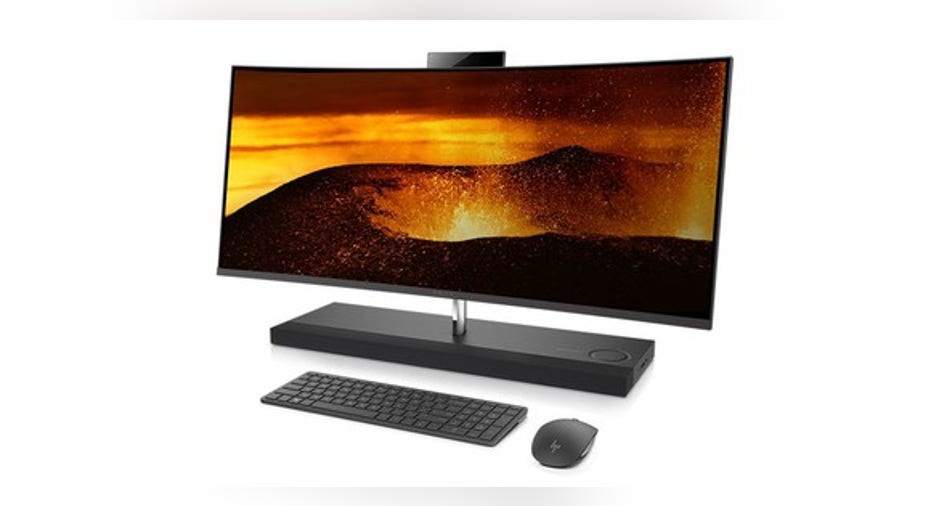4 Things You Didn't Know About HP Inc.

Investors are likely familiar with the basic history of HP (NYSE: HPQ), the seminal tech company founded by Bill Hewlett and Dave Packard in a one-car garage in Palo Alto nearly eight decades ago. HP later evolved from a producer of electronic test equipment into the world's largest PC maker, a title which it held for about six years (2007-2013) before being overtaken by Chinese tech giant Lenovo.
HP is widely considered the "founder" of Silicon Valley, but it hit many speed bumps in recent years. It changed CEOs three times within two years (2010-2011), pursued the disastrous acquisitions of Compaq, EDS, Palm, and Autonomy, and finally split into two companies -- with HP retaining the PC, printing, and imaging businesses, and Hewlett-Packard Enterpriseretaining its enterprise hardware and software units.
HP's curved all-in-one Envy. Image source: HP.
But today, we'll focus on four lesser-known facts about HP which might change your perception about this aging tech giant.
1. Apple might not exist without HP
Apple (NASDAQ: AAPL) co-founders Steve Jobs and Steve Wozniak both worked at HP. When Jobs was 12 years old, he wanted to build a frequency counter but lacked the proper components. Instead of asking his parents for help, Jobs looked up then-CEO Bill Hewlett in the phone book and called him up.
Hewlettwas reportedly so impressed with Jobs' boldness that he gave him the parts and offered him a summer job on the assembly line. In a 1994 interview, Jobs said that "most people don't get those experiences because they never ask."
A few summers later, Jobs was working at HP again when he met Wozniak, who was working on mainframe computers. Wozniak was reluctant to leave HP to start a new company, and even offered the design of the Apple I to HPfive times -- but the idea was rejected each time. Therefore, it's safe to say that without HP bringing these two visionaries together and ultimately rejecting their ideas, today's tech industry might look very different.
2. It's an environmentally friendly company
Back in 2006, HP and Apple were skewered by accusations thattheir laptops contained the highest levels of toxic chemicals among the world's leading PC makers. Those reports prompted both companies to clean up their acts over the following decade.
In 2007, HP announced that it had achieved its three-year target of recycling one billion pounds of electronics, toner, and ink cartridges. The following year, it became the first PC maker to publicly release its supply chain emissions data.
Those efforts helped it rankhighly on Greenpeace's "Guide to Greener Electronics", which ranks companies every few years based on their efforts to reduce emissions, eliminate hazardous substances, recycle obsolete products, and halt the use of unsustainable materials in products and packaging.
3. It killed off Palm two years early
When HP bought Palm in 2010, it thought that it could turn around the struggling smartphone brand within three years to compete more effectively against Apple's iPhone and Android devices. The company's Pre smartphones were fairly well-received by reviewers, but consumers shunned them in favor of iOS and Android devices with expanding app ecosystems.
Palm's WebOS might have evolved into a much larger ecosystem if HP had completed that three-year plan. Yet Leo Apotheker, whoreplaced Mark Hurd as CEO in late 2010, abruptly axed the entire project after a single year in 2011. That stunning move turned its newest TouchPad tablet into a fire sale product, dashed hopes for WebOS-powered PCs, and permanently left HP behind the mobile tech curve.
4. It's been fighting with Oracle for the past six years
HP sued Oracle (NYSE: ORCL) in 2011 after the company halted software development for the IntelItanium processor used in HP's high-end enterprise servers.
That decision was likely related to Oracle's decision to build its own SPARC-based servers. HP won the lawsuit in 2012, and Oracle was required to continue producing compatible software for Itanium-powered servers. Oracle was subsequently ordered to pay HPE, which inherited the legal battle afterthe split, a whopping $3 billion in damages.
Oracle is currently appealing both the 2012 decision and the damages, so the animosity between these two companies won't fade anytime soon. But here's the ironic twist -- former HP CEO Mark Hurd, who resigned amid allegations of misconduct with an employee, is currently the co-CEO of Oracle.
The road ahead
Today's HP is a very different company from the one which Hewlett and Packard founded, the one where Jobs and Wozniak worked, and the one which kept tripping over its own feet with ousted CEOs and terrible acquisitions.
Instead, it's a much more streamlined company that only sells PCs, printers, and imaging devices. And as I've stated before, this slimmed-down HP is definitely worth a closer look for value-seeking income investors.
10 stocks we like better than HPWhen investing geniuses David and Tom Gardner have a stock tip, it can pay to listen. After all, the newsletter they have run for over a decade, Motley Fool Stock Advisor, has tripled the market.*
David and Tom just revealed what they believe are the 10 best stocks for investors to buy right now... and HP wasn't one of them! That's right -- they think these 10 stocks are even better buys.
Click here to learn about these picks!
*Stock Advisor returns as of May 1, 2017
Leo Sun has no position in any stocks mentioned. The Motley Fool owns shares of and recommends Apple. The Motley Fool owns shares of Oracle. The Motley Fool recommends Intel. The Motley Fool has a disclosure policy.



















